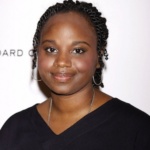Lets hear it for the Girls: Questioning the BAFTAs-So-Male Nominations.
It’s a fun time of year for cinema. All of the best films are slowly ebbing out of the woodworks in time for the awards ceremonies, so there’s a lot more of a guarantee of value for your buck when you take a seat in front of a big screen. The unfortunate thing is, there’s something other than extortionately priced popcorn putting a sour taste in our mouths this season. Of the recently announced BAFTA nominations, the multi-gendered categories in which no women were nominated were: directing, adapted screenplay, original music, cinematography, editing and visual effects. Funnily enough, there was not one category that qualified male nominees in which none were included, although a huge round of applause goes to ‘Best Hair and Make-up’, in which 7 women received a nod alongside 6 men. Revolutionary. Well done BAFTA.
At this year’s Golden Globes, whilst presenting the directorial award, Natalie Portman bravely announced ‘and here are the all-male nominees’ while her co-presenter Ron Howard guffawed in surprise. This was extremely ballsy, and enticed a snicker from most of the crowd, but really it’s not much of a laughing matter. In a year where female empowerment and the rise of the #metoo and TimesUp movements have dominated the media, you’d think the academies would be a little bit more careful, considering the backlash it felt 2 years ago with the Oscars-so-white controversy. It lieu of this, here’s a shout out to some of the ladies that didn’t get their rightful share of the shout outs this year. U go girls.
GRETA GERWIG
 Arguably the biggest snub at both the Golden Globes and the BAFTAs was the lack of directorial nomination for Greta Gerwig, who’s amorous coming-of-age tale ‘Lady Bird’ won both Best Comedy or Musical Picture and Best Actress for Saoirse Ronan in the titular role. Gerwig’s film, a semi-biographical account of growing up in Sacramento and her first behind the camera, was at one point last year the highest rated film of all time, with an outstanding 163 glowing reviews. Its crown was removed by Cole Smithey, who hails himself as ‘the smartest film critic in the world’ (who?) and had a big old moan about the film being ‘dramatically flat’ and part of the ‘Mumblecore’ indie-domination problem. Smithey was also the first man to give Toy Story 3 a bad review, and we all remember what an awful, treacherous bore of a film that was. Disenfranchised, whingey critics aside, Gerwig deserved a lot of more recognition for this achievement that has been granted, and her inauguration behind the camera will pave an exciting continuation of her directorial career.
Arguably the biggest snub at both the Golden Globes and the BAFTAs was the lack of directorial nomination for Greta Gerwig, who’s amorous coming-of-age tale ‘Lady Bird’ won both Best Comedy or Musical Picture and Best Actress for Saoirse Ronan in the titular role. Gerwig’s film, a semi-biographical account of growing up in Sacramento and her first behind the camera, was at one point last year the highest rated film of all time, with an outstanding 163 glowing reviews. Its crown was removed by Cole Smithey, who hails himself as ‘the smartest film critic in the world’ (who?) and had a big old moan about the film being ‘dramatically flat’ and part of the ‘Mumblecore’ indie-domination problem. Smithey was also the first man to give Toy Story 3 a bad review, and we all remember what an awful, treacherous bore of a film that was. Disenfranchised, whingey critics aside, Gerwig deserved a lot of more recognition for this achievement that has been granted, and her inauguration behind the camera will pave an exciting continuation of her directorial career.
DEES REES

Dees Rees might not be a name that rings any bells, but it should. Her Netflix-acquired Mudbound was one of the most relevant and perturbing films of the year, with some standout performances from Carey Mulligan and an unrecognisable Mary J. Blige. Her film chronicles 2 families in farmland America post-WW2, and tackles major racial issues in a refreshing and applicable manner. Another hugely disappointing snub is the lack of nomination for the film’s cinematographer, Rachel Morrison. The grainy, sepia laden tones that she has added to Mudbound’s dirt-trodden landscapes triples the intensity of the direction and the film would have not achieved the same level without it. An Oscar nomination is also looking unlikely considering not one single woman has ever received one. We can hope for a miracle.
PATTY JENKINS
 Remember how praised and successful all of the male-directed DC films have been over the past two years? Nope? Me neither. Gal Gadot’s turn as Wonder Woman happily saved the studio from utter critical explosion in 2017, and this was down to its’ fabulous director Patty Jenkins. Wonder Woman is now the highest grossing film by a female director, surpassing $821m, and Jenkins was this year’s runner up for Time person of the year. It would, therefore, have been nice to see her recognised in the cinematic circles, where Wonder Woman, like Mudbound, is yet to receive a single nomination in any category. Zach Snyder, the first director attached to the project and subsequent director of the shit-storm that was Justice League, was offered $3m. Jenkins was paid $1m. Agreeably, the deal she has drawn with her attachment to direct the sequel has landed her a larger 7-figure salary, rumoured to be around the $7-9m mark and will make her the highest earning female director of all time, but this absolutely pales in comparison to her male counterparts. J.J. Abrams, Ridley Scott, David Yates, Gore Verbinski, Chris Columbus, Robert Zemekis. All males, all decent directors. All averaging over $100m dollars per film. And we thought the 21% pay-gap was bad.
Remember how praised and successful all of the male-directed DC films have been over the past two years? Nope? Me neither. Gal Gadot’s turn as Wonder Woman happily saved the studio from utter critical explosion in 2017, and this was down to its’ fabulous director Patty Jenkins. Wonder Woman is now the highest grossing film by a female director, surpassing $821m, and Jenkins was this year’s runner up for Time person of the year. It would, therefore, have been nice to see her recognised in the cinematic circles, where Wonder Woman, like Mudbound, is yet to receive a single nomination in any category. Zach Snyder, the first director attached to the project and subsequent director of the shit-storm that was Justice League, was offered $3m. Jenkins was paid $1m. Agreeably, the deal she has drawn with her attachment to direct the sequel has landed her a larger 7-figure salary, rumoured to be around the $7-9m mark and will make her the highest earning female director of all time, but this absolutely pales in comparison to her male counterparts. J.J. Abrams, Ridley Scott, David Yates, Gore Verbinski, Chris Columbus, Robert Zemekis. All males, all decent directors. All averaging over $100m dollars per film. And we thought the 21% pay-gap was bad.
Things are looking up. You don’t need me to tell you how heavily addressed some gender related issues are currently, and it’s all going in a fairly positive direction. By recognising and rewarding the achievements of these women, we raise them and improve on the relinquishment of inequality, but judging by this years’ awards season there is still a long way to go.
- Three Billboards Outside Ebbing, Missouri (2017) - 15th January 2018
- A Ghost Story (2017) - 20th December 2017
- Jim and Andy: The Great Beyond - 22nd November 2017










